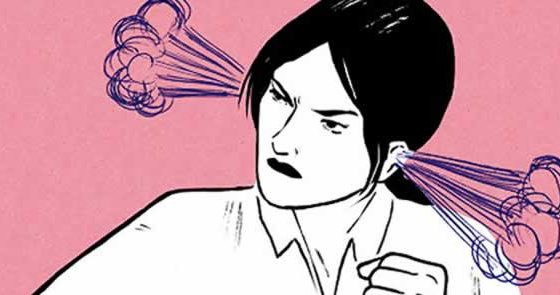The Man Who Thought He Was An Ostrich
“I’m so frustrated,” Carolyn said, spitting out her words. “Why do I have to be the one to care about our marriage? Doesn’t he care about me at all?”
Carolyn had been married to Karl for over thirty years, and here she was in counseling again hoping to learn how to reverse or hopefully eliminate a pattern that was stifling her.
“I suspect Karl cares a great deal for you Carolyn,” I said reassuringly. “Do you think it’s possible he simply doesn’t know how to relate emotionally?”
She slapped the side of her chair in frustration. “But why do I have to teach him how to relate? Do I have to spell out what I need from him every time?”
“Maybe,” I said gently. “I know lots of women are frustrated by this. They’d like men to ‘get them;’ understand their emotional needs. But, it often takes counseling for men to learn about the world of emotions and relating.”
“That brings up another issue,” Carolyn said angrily. “I can probably force him to come to counseling, but if I have to make him, what good is it? I’m the one doing all the work. I’m exhausted.”
Indeed, Carolyn looked tired. I had seen her and Karl several years before and they had dropped out of counseling prematurely. I could sense the first time I saw them, that Carolyn was more eager than Karl to have an intimate relationship. Karl resisted counseling then, just as he was doing now, but now Carolyn wondered if she wanted to stay married.
“Well, I’m just sick of the way things are going. Everything’s fine as long as he can ignore anything with emotions. But, I’m fifty years old and tired of living in a passionless marriage. I want connection. I want him to initiate conversation. I want him to ask how my day was and to be genuinely interested in what’s happening with me. Am I asking for too much?”
“No, you’re not asking for too much, and you’re certainly not alone,” I said. “Karl is doing what a lot of men do—putting his head in the sand, trying to escape any emotional intensity, solving problems once and for all, and blowing up in exasperation if he can’t solve a problem quickly and easily. We men are a bit handicapped when it comes to relating.”
“You make it sound like there’s no hope. I’m ready to leave the marriage if things don’t change. I’ve got some good years left and I’m not going to keep nagging at him to join me in the marriage.”
“I can’t blame you,” I said. “But let’s talk about what Karl does to avoid intimacy, how you tend to react, and perhaps ways you enable him to not grow.”
“So, it’s my fault he’s the way he is?”
“No, not at all,” I said. “But, there are ways of relating you drift into that enable him not to change. If we can identify those, and change them, chances are pretty good we can encourage him to grow. Sound like a plan?”
With that Carolyn and I explored the history of their marriage. We talked about how she had always been the pursuer of intimacy, and how Karl, like other men, avoided anything emotional. She shared how when he distanced and disengaged, she became angry and critical. When she criticized him, he exploded. She noted how she was bitter and resentful, and how he dug his feet in even more with any emotional conversations.
Carolyn and Karl, like many couples, exhibited the following pattern:
- She pursued emotional conversations; he resisted these advances;
- She purchased books for them to read; he made excuses for not reading them;
- She sought opportunities to spend quality time together; he invested his time and energy into business pursuits;
- She sought to enhance their spiritual lives; he resisted talking about his faith;
- She valued loyalty and intense communication; he valued freedom and easy, light-hearted conversation;
- She wanted commitment and responsibility; he desired flexibility and tends to be irresponsible.
It might be tempting to villainize men, but they aren’t trying to be this way. Our culture indoctrinates men to quickly eliminate problems, to avoid talking about emotions and to dislike emotional intensity. Men are trained to make excuses for their behavior, rather than take personal responsibility for their actions.
Women, on the other hand are trained to be relational, nurturing family and marriage. They tend to care for the well-being of others and are naturally able to handle emotional intensity.
What is the answer?
Given this troubling scenario, what is the answer? Here are several things to consider and ways to change this pattern.
First, understand that you both participate in this troubling pattern. Since you have settled into this pattern, you must step back and look at your part in this situation. There are no victims or villains. It will take concerted effort on both your parts to shift the relationship back into a healthy direction. Both must look at their part in the pattern, agreeing to change it. Denial by either partner can be devastating.
Second, encourage him to participate in counseling, showing him the benefits of such action. While he may initially resist, when a woman is really serious about her husband being involved in counseling, and helps him see the benefits, he’ll usually join her. If you are consistent with your message that change must occur, he will get that message. Please see my book, Nine Critical Mistakes Most Couples Make to learn more about changing destructive patterns in marriage.
Third, understand and agree to end the power struggle and work on cooperating with each other. Everyone loses in a power struggle. The woman must end the pattern of pushing while he resists. There must be a fundamental agreement to end this dysfunctional pattern of relating. Both must notice and take responsibility for this pattern, agreeing to end it.
Fourth, the emotional work ultimately succeeds by invitation and patience. Women who are emotionally intense and volatile should expect a man to withdraw, while an agreement to approach issues cautiously and with equanimity will often bring positive results. Reassure him you will be patient in the emotional work, prepared to take a ‘time out’ if things heat up.
Fifth, agree to manage the ongoing emotionality in the relationship. Anticipate that things will heat up at times, preparing ahead of time how you will take time outs. Women are usually willing to take ‘time outs’ if given reassurance that hot topics will be addressed at an agreed upon time. When women feel discounted or pushed away, they often feel even more anxiety and press in harder.
Finally, encourage each other as you change these patterns. Notice the progress made as you deal effectively with issues. Notice the positive impact of taking co-responsibility for issues, as well as finding solutions to problems. Thank her for managing her emotional intensity, and offer kudos to him for being willing to talk about touchy topics. Delight in the intimacy that results from keeping the emotional slate clean from issues.
If you are married to a man who tends to act like an ostrich, burying his head in the sand, I’d like to hear from you. Let me know how these strategies work, or whether you’ve found other strategies for balancing your relationship.












